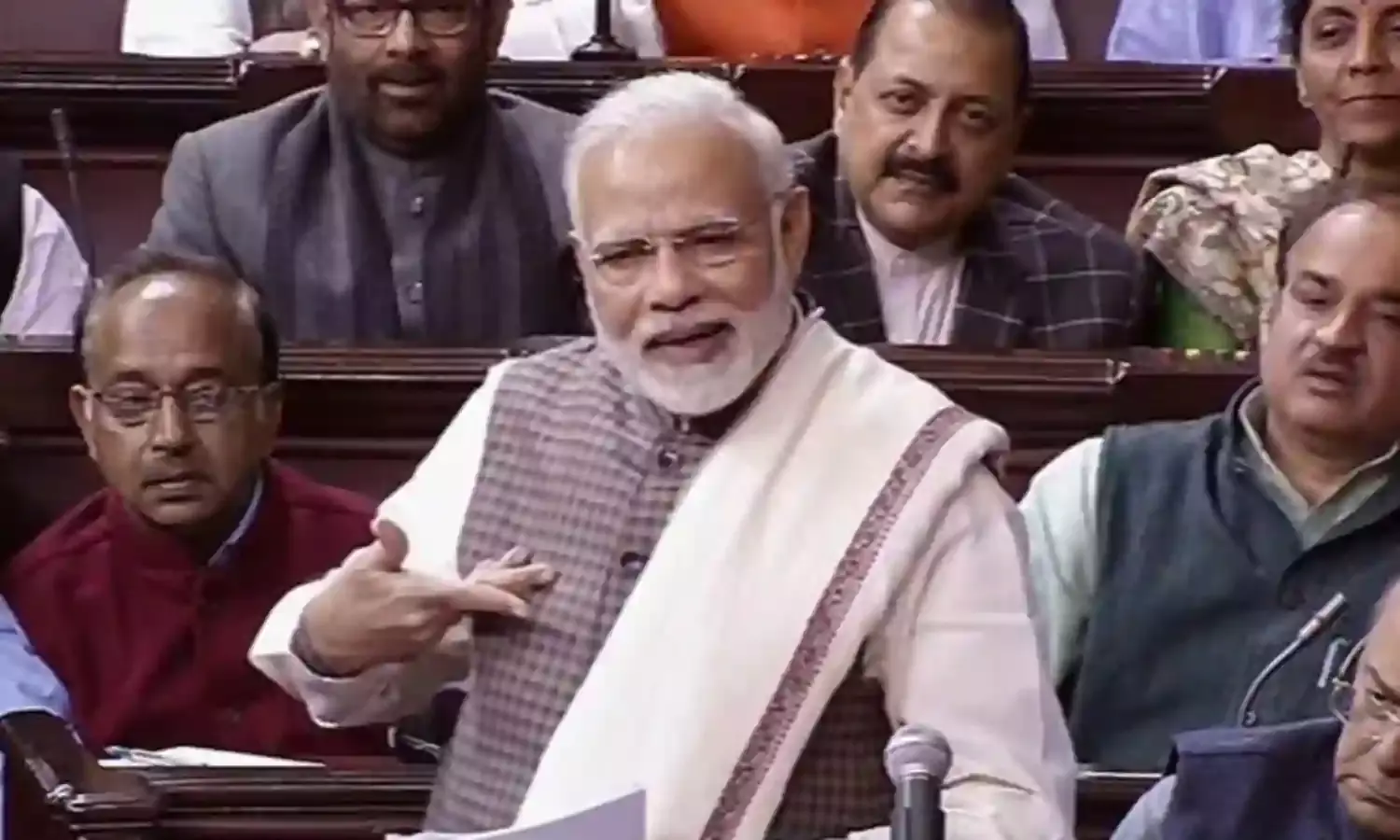PM Modi Sounds the Election Bugle: Congress and Hindutva the Agenda for 2019 Polls
The Prime Minister departs from convention to go into aggressive mode in Parliament

100 minutes in the Lok Sabha. And 70 minutes in the Rajya Sabha. Prime Minister Narendra Modi chose to rant instead of speak in response to the Presidents address Motion of Thanks.
Why? Because he has decided to go into election mode if at all he ever came out of it after 2014. Both the speeches had Congress as the focal point. Conventionaly the response to the President’s address in Parliament by a Prime Minister focuses on the government’s performance, and responds to the Opposition’s grievances.
But then Narendra Modi is no usual PM. For him, it doesn’t matter if he is in Parliament addressing MPs or in a stadium addressing the electorate. Let us not get into whether it is right or wrong. Because Modi’s politics cannot be compared to the conventional norms of dignity and tradition. Indira Gandhi had similarly used Parliament to attack her opponents. Maybe PM Modi has taken a leaf out of her book.
Let us not be misled into believing Modi got carried away during the speeches. It is an astute move by the man who knows the election game well.
PM Modi knows his government has failed to deliver on the pre-poll promises. The topical budget, too, has not received great reviews. At a time like this, he knows it is most prudent to make the opposition the centre of the narrative by listing the mistakes they have made, and also the ones they have not made, in the past. There is a considerable section of the society that still fumes at Congress’ corruption and Modi is confident of pulling off another election win riding on that sentiment. He hopes that the dislike of the Gandhis would be more than the disillusionment with the present regime.
In his speeches, Modi’s history and fiction often overlapped in his attack on the Congress. The RSS has long been known for its hatred towards Jawaharlal Nehru, and Modi is no exception. Nehru isn’t responsible for democracy in India and we would have been better off had Sardar Patel been our first PM, as entire Kashmir would have been ours, Modi claimed. Only to be dismissed by credible historians.
First of all, Nehru never claimed credit for introducing democracy in India. He didn’t have to. Secondly, there is historical evidence showing Patel was ready to let go of Kashmir. He was more interested in Junagarh. But history has never been Modi’s strong point and yet he is brazen about it. He knows the historical evidence flies in the face of perceptions. He wanted to attack Congress, and he did, with the no new claims on offer.
If one juxtaposes Modi’s speeches from yesterday with his 2014 campaign, it would difficult to differentiate between the two. They worked back then. Whether these will work now or not is anybody’s guess. However, the fact that Modi has to rehash his old speech even after being 4 years in power with absolute majority is telling.
He has to seek refuge in Congress crimes because he has little to offer the farmers. And unemployment is rising ominously. The middle class is unhappy with the budget. Traders are reeling under the impact of demonetization and GST. And most importantly, law and order is in shambles.
Modi got a reality check in Gujarat and then the Rajasthan bypolls shook him up. He knows the only way out is to deflect attention from his own lapses. In the two speeches in Parliament, he has revealed his election agenda: Congress corruption and Hindutva.
All eyes are now on Congress and Rahul Gandhi. Their response to this would determine the course of 2019 elections. Rahul Gandhi has kept the attack going for now. Immediately after PM Modi’s speech, he kept the focus on the core problems and the murky Rafale seal.
But the Modi is a master at manipulating opinions. He has the luxury of a spineless media too. As the elections come closer, he will be more aggressive in his attack, regardless of accuracy. “If you tell a lie big enough and keep repeating it, people will eventually come to believe it.” Wonder who said this?



